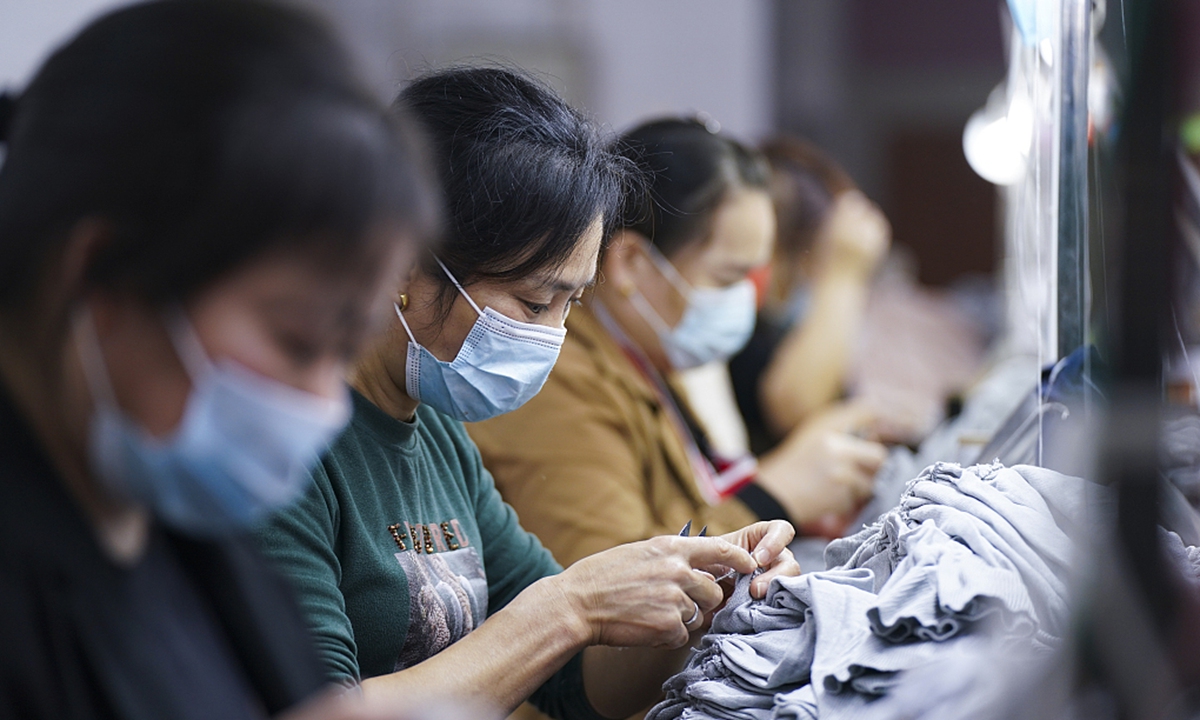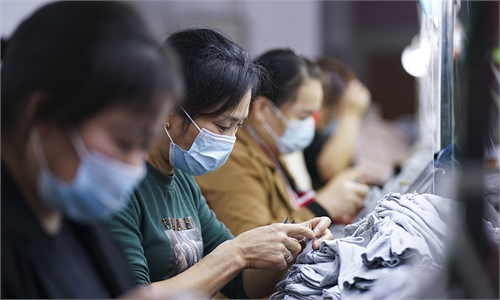China to continue tax deferral for smaller manufacturers in push for economic revival

Workers work in a clothing manufacturing firm in Xinyu, Jiangxi Province on November 5, 2021. Photo: VCG
China will continue to defer tax payments for smaller manufacturers as part of efforts to revive economic activity, according to an executive meeting of the State Council, China's cabinet, on Tuesday.
The key to stabilizing the economy lies in ensuring the operations of market entities. In an attempt to bail out market entities in the manufacturing sector that are currently facing big challenges, the executive meeting decided to defer some taxes for small and micro-sized manufacturing firms and self-employed people, the state broadcaster China Central Television (CCTV) reported on Wednesday.
The tax deferral for four months beginning September 1 amounts to 440 billion yuan ($63.20 billion). Meanwhile, the newly added tax credits for manufacturers will be refunded immediately after application, resulting in 32 billion yuan in tax refunds for the manufacturing sector over the remaining four months of the year.
A joint statement by the State Taxation Administration and the Ministry of Finance on Wednesday also detailed the tax deferral plan.
Medium-sized manufacturing firms that have already been entitled to a 50 percent tax deferral and small and micro-sized manufacturers that have got a 100 percent deferral will see their deferral prolonged by an additional four months from September, according to the joint statement.
The Tuesday meeting presided over by Premier Li Keqiang also pointed out that the push for renovation of equipment in weak areas in terms of economic and social development augurs well for boosting manufacturing demand and prompting a consumption rebound.
Accordingly, banks have been encouraged to extend medium- and long-term loans at a rate of not higher than 3.2 percent for small and micro-sized businesses and self-employed people in the spheres of manufacturing and social services who have plans for equipment renovation over the fourth quarter.
The People's Bank of China, the country's central bank, will offer special re-lending for 100 percent of the renovation-related loan principal, according to the meeting, and the relending quota was set at 200 billion yuan for one year and could be rolled over twice.
The cabinet's Tuesday meeting also stressed the need for stabilizing foreign trade and foreign investment, as well as the creation of a slew of new cross-border e-commerce pilot zones and the implementation of key foreign-invested projects.
Additionally, the cabinet meeting decided on the approval of the second phase of Zhangzhou nuclear power plant in East China's Fujian Province and the first phase of Lianjiang nuclear power plant in South China's Guangdong Province. Absolute security of the nuclear power projects must be ensured, the meeting said.

